#save cosmo
Explore tagged Tumblr posts
Text

Fly high 💛💚
#sonic fanart#sonic fandom#sonic the hedgehog#sonic ships#sonic x#miles tails prower#tails the fox#cosmo the seedrian#tailsmo#sonic x anime#save cosmo#savecosmo
56 notes
·
View notes
Text

Tails and Cosmo suffering from romantic brainrot.
#tails#sonic#sonic the hedgehog#tailsmo#tails the fox#miles prower#sonic x#cosmo the seedrian#savecosmo#save cosmo#taismo#sonic ship#shipping dynamic
25 notes
·
View notes
Text
Sketch stuff #3??? Ajajja
I just love doing a little few sketches in day
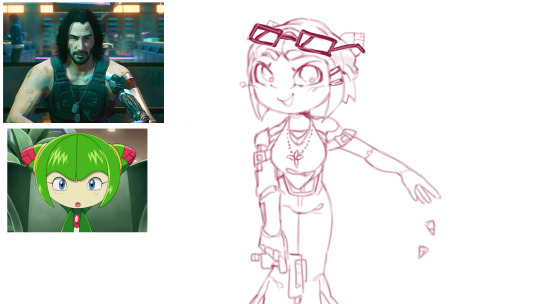
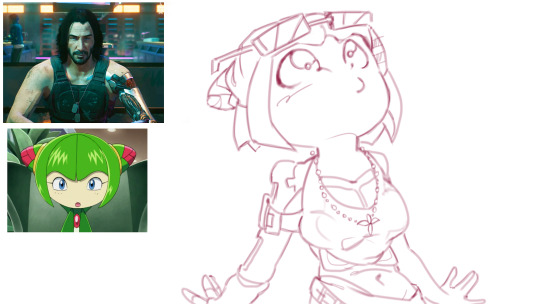
Cosmo X Cyberpunk cause why not
And sad little Archie Sally :(
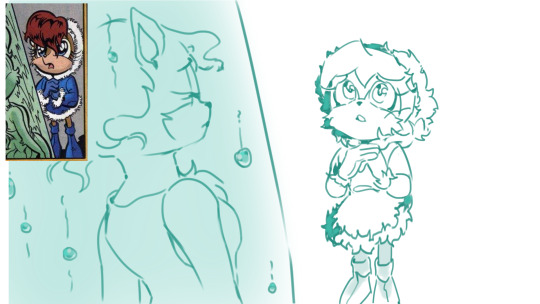
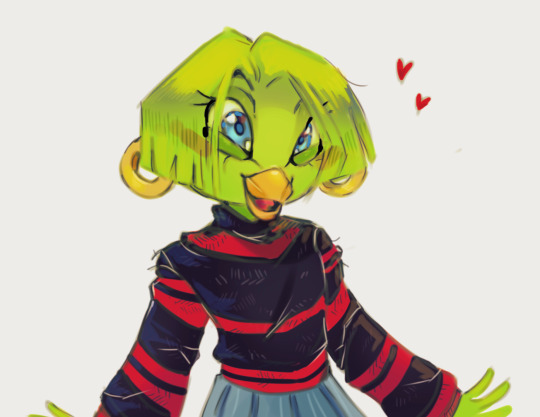
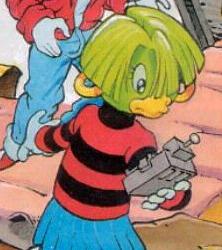
And funny Tekno the canary on Fleetway comics!! She so beautiful little ducky(
#Sonic#art#tekno the canary#Sonic Fleetway#Fanart#Sonic fanart#sonic sally acorn#Sally Acorn#cosmo the seedrian#Sonic Cosmo#save cosmo#rally4sally#cyberpunk art#Cyberpunk#cyberpunk 2077
52 notes
·
View notes
Text

Keep forgetting I have a Tumblr account LMAO. This is a GIF from last year of Cosmo the Seedrian I made when the Save Cosmo Page was doing Cos-Mas a little countdown to Christmas with Cosmo. They noticed this one!
5 notes
·
View notes
Text





messed up on bobettes size in comparisson 2 the rest of the holidays.. ive literally never played dandys world but that comic on tiktok by poilubsu (whatever this is) was so peak i couldnt stop myself from going deeper in2 the fandom. somehow a few of these designs r already slightly outdated to how i draw them ?? mostly the commons (SHRIMPO.) but it was still sooo much fun. due to rarity i only drew commons thru rares as post-twisting








misc doodles. i have such bad favoritism for shrimpo. and the number of drawing im holding from u bc its a rarepair is heartbreaking. maybe later !!!
had to come back and edit in some ms paint doodles



#dandys world#dandys world fanart#i have to tag EVERYONE ??? loooorrrddd save me#dw boxten#dw cosmo#dw poppy#dw looey#dw shrimpo#dw tisha#when i first saw looey. and i had been seeing a lot of dw in passing. i thought he was lowk fugly#but now ... i see the vision and im sorry#dw brightney#dw connie#dw finn#dw razzle and dazzle#dw rodger#dw teagan#dw toodles#brightney is such a funny character to me. why is shelly concerned abt being forgotten when brightney is right there#i know they gotta exist but i am yet to see someone whos favorite is brightney. love her tho !!!#dw flutter#dw gigi#dw glisten#dw goob#dw scraps#i was so mad drawing glisten bc gigi was SO FUN shes got such a delightful look. and glisten is just so GAY#but i do genuinely love his look. so fun to doodle#dw astro#astro novalite#MY SHAYLAAA i love taking a character with a big fluffy jacket or blanket and peeling them. he is now Small
2K notes
·
View notes
Text

Now, all I want is my partner back.
#Nah they aren’t in love just exploded into the cosmos together to save each other normal friend activities#jayce talis#Viktor#jayvik#jayce x viktor#arcane#art#digital art#gay gay homosexual gay#historians will say they were close friends#I hate them#but I love them#coolguyart
2K notes
·
View notes
Text


rewatching the old fop, and these screenshots were super cute, i wanted to quickly draw them out.
#can u tell that this show#well more like irep#have become my comfort things#feeling awful but irep is here to save me#irep fop#fopanw#fairly odd parents a new wish#fairly oddparents#perirep#peri#irep#poof#foop#wanda#cosmo#anti fairy#doodle#sketch#im sorta undecided if i like drawing irep with a demons tail or nah#screenshot from the episode play date of ...doom
453 notes
·
View notes
Text


@micia-posts-stuff made the genius comparison between Dev and Damian from SpyxFamily that inspired this crossover! I’m all good for Dev and hazel getting along again in the season finale but..won’t be mad if they go along the Anya-Damian route starting next season (..hopefully if we GET one 😩😊✨)
#I rlly think these characters saved the show#I heard it had so many reboots but like..this one is GOOD.#also I love cosmo and wanda sm even in the OG they were 😩✨💖#fop a new wish#fop fanart#fairly oddparents#devzel#spy x family#fairly odd parents a new wish#hazel wells#dev dimmadome#anya forger#damian desmond#crossover#anime#cartoon#nickalodeon#fop art#cosmo and wanda#poof fairywinkle cosma#fairly odd parents a new wish fanart#y’all don’t need to copy and re-add these tags 😅#hazel x dev#trending
442 notes
·
View notes
Text




Mini shrimpbowl comic under this 😼






#deerbeard#fanart#dandy’s world fanart#dandys world#finn x shrimpo#finn dw#shrimpo dw#dw cosmo#poppy dw#goob dw#ship art#these homosexuals have taken over my brain 😔 save me
248 notes
·
View notes
Note
can I turn them into rats
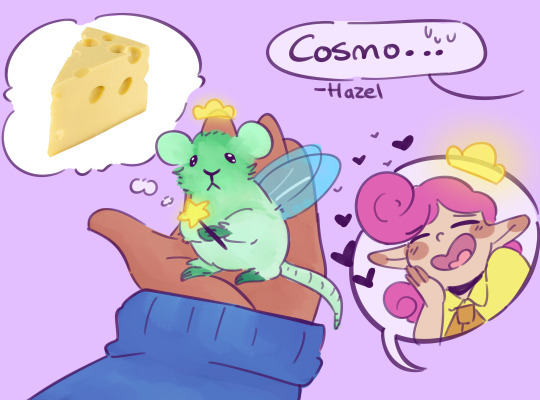
Rats!! Wanda loves Cosmo no matter what form he takes. Even if he forgets to... remove a few unnecessary details.
Bitties Series: [Start] > [Previous] > [Next]
#fairly oddparents#fop#fop a new wish#fop hazel wells#fop hazel#hazel wells#fop wanda#wanda#fop cosmo#cosmo#asks#itty bitties fop au#DA SILLIES#GOD.#I WAS.#SO SO TEMPTED#TO SAVE THIS ASK FOR PLOT PURPOSES#but then that'd make it TWO of your asks trapped in the plot void#so i drew this one for you :D
296 notes
·
View notes
Text
“Our deaths didn’t matter”: On vulnerabilities, precarious life and grievability in Netflix’s Dead Boy Detectives
oh, a little essay i wrote for my intro to gender and diversity studies seminar? yeah, i'll share that on tumblr :) (this was written in a day with almost no proof reading, so please keep that in mind)
A story about two teenage ghost boys solving supernatural mysteries while on the run from Death herself cannot get around discussing precarity of life and the conditions of grievability: What makes life precarious and why are some persons deemed grievable and others not? Dead Boy Detectives deals with the themes of loss and grief and injustice, its two main characters central to that exploration: Edwin Payne and Charles Rowland are two boys who have been killed at 16 and now run a supernatural detective agency to help other beings move on (to their afterlife) while themselves refusing to do the very same. Using Judith Butler’s theory of precarity and grievability, I argue that the series returns the grievability to the lives of the two ghost detectives: on the narrative level of the living and of the dead, as well as on a meta-narrative level. Starting out as ungrievable, Edwin and Charles come back to life through their respective character arcs as well as the show’s mere existence.
Butler distinguishes between precariousness and precarity: the first being the very condition of making “life” matter because of its fragile and injurious constitution, and the latter being the political and social conditions through which specific lives are apprehended as precarious or not (3, 24, 25). Precarity is therefore created through political mechanisms, frames which change and break out of themselves through time and space (10). The frames determine which life is recognised to matter and therefore needs protection at any point in time: “a life has to be intelligible as a life, has to conform to certain conceptions of what life is, in order to become recognizable. So just as norms of recognizability prepare the way for recognition, so schemas of intelligibility condition and produce norms of recognizability” (7). This mechanism becomes visible through the notion of a grievable life. Grievability appears as “a presupposition for the life that matters” (14). Thus, lives that are deemed grievable are in turn apprehended as precarious and to matter, whereas ungrievable lives “are ‘lose-able’, or can be forfeited, precisely because they are framed as being already lost or forfeited.” (31). They are considered a threat to the “right” kind of precarious life which in turn sanctions the use of violence against them. They exist in a state outside of life, “something living that is other than life […] and ungrieved when lost” (15). Butler’s notion of precarity and grievability is focused on the context of war, however it can be applied generally as well: Frames of vulnerability that ensure an unequal distribution of grievability exist in everyday life.
The mere premise of Dead Boy Detectives already gives reason to think about lives that matter. Here you have two teenage ghost boys that died with their whole lives still ahead of them. They are using their existence as ghosts as a sort of surrogate life — living for all intents and purposes without being alive — yet without the possibility of ever truly growing up, they are stuck being living dead. Their grievability lies in the unfulfilled potential they have because their lives have been cut short, “a life unlived”.
The narrative frames their deaths as unjust tragedies, not only because they died young, but because of the way they died and the treatment they received from the living following their deaths. Both boys are killed by their classmates in violent hate crimes for being different. Edwin is dragged from his bed at the boarding school St Hilarion’s in the middle of the night, gagged and bound to a table. His classmates, led by Simon, call him “Mary Ann”, a derogatory word used to describe effeminate gay men. Their goal is to scare Edwin by performing a sacrifice to the demon Sa’al unknowing that the ritual is real. Sa’al turns up, kills the classmates and takes Edwin to hell — apologizing for the technicality that seemingly forces his hand. In hell Edwin is tortured for the next 73 years before escaping in 1989 and returning to earth as a ghost. (“The Case of Crystal Palace” 31:09 – 33:08).
He meets Charles Rowland while the other boy is on the brink of death. Charles defended a classmate from bullies who targeted the classmate for being Pakistani. Charles stepping in had the bullies turn on him, beating him up and forcing him into a freezing lake while throwing stones at him. Charles manages to swim and then run away, hiding in the attic of St Hilarion’s. There he dies of hypothermia and internal bleeding. (“The Case of the Lighthouse Leapers” 40:28 – 42:58). In the last few hours of his life, Edwin keeps him company. They form a friendship and, when Charles has passed away in the early morning, they run from Death together (“The Case of the Very Long Stairway” 10:14 – 15:02). While Edwin’s death hasn’t been changed much from the original version in the comics (except for the bleak detail of the classmates shoving his body into a trunk where it lay undiscovered for decades – the show simply has Edwin’s body disintegrate), the Netflix adaptation changed Charles’ death quite a bit: In the comics, he is alone at the school over winter break and victim to the escaped souls of Hell, including a cruel headmaster and Edwin’s bullies, who torture Charles for days before he dies (Gaiman). In the show, Charles dies at the hands of his racist classmates, not the supernatural.
Their deaths are human made, brought upon by other kids. While there arguably was no intent for murder in either case, the intent behind the hate crimes that led to the boys’ deaths betrays a disregard of lives that enabled violence in the first place. Edwin was targeted by bullies for his presumed homosexuality, both because of the outward homophobia of his classmates as well as Simon’s internalised homophobia. During Edwin’s brief return to hell in episode 7, Simon reveals that he used to have feelings for Edwin: “I got so embarrassed thinking we… We were the same” (“Very Long Stairway” 26:04). Simon recognised in them both that their homosexuality made them ungrievable in the eyes of 1910s British society where it was still criminalised. Instead of using this vulnerability to violence for solidarity and a united front, Simon hid his vulnerability and, in an attempt of proving his life’s precarity to his classmates, turned into the perpetrator of violence himself. In Butler’s words: “the shared condition of precariousness leads not to reciprocal recognition, but to a specific exploitation of targeted populations, of lives that are not quite lives cast as ‘destructible’ and ‘ungrievable’” (31). Edwin’s monologue in episode 1, when he tells Crystal Palace of their deaths, makes this ungrievability explicit:
Do you know what happened when I died, Crystal? Nothing. My disappearance was labelled ‘an act of God.’ And Charles? The boarding school covered up what happened to him. Our deaths didn’t matter. No one ever solved them. […] We are solving cases that would never be solved. […] We didn’t matter, he and I. So these cases matter. They have to matter. (“Crystal Palace” 40:09).
Similar to Edwin, Charles seems to have gone ungrieved. As a biracial Indian kid coming to the defence of a Pakistani boy, he is vulnerable to racist violence. Even before his death he experiences violence at the hands of his abusive father which he is not protected against. In fact, he carries that trauma with him more than 30 years after his death, unprocessed and unacknowledged. The cover-up of Charles’ death implies that the futures of his classmates were deemed to outweigh the crime of taking his unlived life. Their precarity was recognized while his was denied. His loss didn’t matter — just like Edwin’s hadn’t.
The narrative shows that the frame of their grievability shifts over time, however. While Edwin was not deemed grievable in 1916 and Charles experienced the same in 1989, they find value to their lives not only with each other but also through the people they help and meet. Most importantly, however, they learn to apprehend their own precarity over the course of the series by completing their character arcs: Through his encounters with the Cat King and Monty, Edwin learns to stop repressing his sexuality and to accept his romantic feelings for Charles, going so far as to confess his love to Charles on the stairs out of hell (“Very Long Stairway” 45:30). His acceptance and embracing of the very thing that made him vulnerable to violence gives him the ability to help absolve Simon of his guilt, enabling both of them to leave hell (Simon by moving on to the afterlife, Edwin by running out with Charles) and therefore breaking the cycle of violence. By acknowledging their respective grievability and vulnerability, both Simon and Edwin get to be apprehended as precarious lives.
Charles in turn is forced to process the abuse he suffered at the hands of his father. He is confronted with his vulnerability and has to deal with the fear of turning into a perpetrator by virtue of being his father’s son. By acknowledging his anger at his fate, he finally allows himself to grief both the youth that was stolen from him by his father as well as the future taken from him by his classmates. After beating the Night Nurse, who is trying to force the boys to move on to their afterlives, into the mouth of a sea monster, he says: “Was it to extreme, Edwin? So was me dying at 16, mate. I don’t wanna be dead. I hate it.” (“Lighthouse Leapers” 44:10). This confession sets of Charles no longer repressing his anger and instead seeking reassurance from his friend. Through his grief, and through letting Edwin partake in that process, he returns grievability to his unlived life, making it matter.
Edwin’s and Charles’ vulnerabilities as minorities exposes the norms of the frames through which grievability and precarity are apprehended. They also show a shift in those frames: their story could be told because queer people’s and the lives of people of colour are nowadays deemed as precarious and worth telling. On a meta-narrative level, then, their unlives are made to matter again through the existence of the show. They get to tell their story and be the heroes in it, making sure other people’s lives matter and are grieved. By shining a light on the injustice that is their deaths, the show in some form grieves their unlived lives, making them matter and giving them precarity. The ghosts retroactively turn back into living beings. Ironically, the series’ cancellation in August of 2024, despite a generally good reception both in viewership and critical acclaim (Otterson), has diminished this feat: The Dead Boy Detectives return to being ghosts whose story doesn’t matter enough to be told (any further). Their true grievability may lay in the fan’s effort to get the series renewed and to bringing the dead boys back to life.
[Works Cited (besides the eipsodes themselves): Butler, Judith. Frames of War. When is Life Grievable? Verso, 2009.]
#putting the rest under a read more because it's a 5 page essay#anyways. lots of thoughts. i could have gone more into depth but there was a 5 page limit so. had to keep it short and concise#let me know your thoughts!!!!!#dbda#dead boy detectives#dead boy detective agency#dead boy detective netflix#dead boy detectives meta#dbda meta#edwin payne#edwin paine#charles rowland#payneland#painland#edwin x charles#save dead boy detectives#save dbda#cosmo creates
60 notes
·
View notes
Text

Just realized I never posted this here :3
I just love Cosmo's design.
🌸 Reposting supports artists~ 🌸
#sonic fanart#sonic fandom#sonic the hedgehog#save cosmo#savecosmo#cosmo the seedrian#sonic x anime#sonic x fanart
45 notes
·
View notes
Text
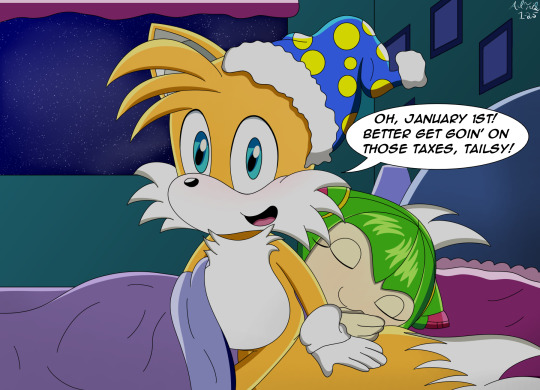
Tails at 12 in the morning on January 1st (real).
#tails#tails the fox#sonic#sonic the hedgehog#miles prower#tailsmo#cosmo the seedrian#save cosmo#sonic x#the simpsons#simpsons#taxes#meme
30 notes
·
View notes
Text



whose dandying up this world? nobody? slackers.
#dandys world#dandys world fanart#art blog#dandys world astro#fanart#astro dandys world#astro novalite#jellaycompf#astro art#astro dw#shelly x astro#astro x shelly#shelly fossilian#dandys world shelly#dw shelly#dandy’s world cosmo#twisted cosmo#cosmo#cosmo the pastry#dandys world cosmo#dw cosmo#dandys world art#dw art#ship art#my art#digital art#art#i love the new interactions.. plz save me
80 notes
·
View notes
Text

Fan made Jetix wallpaper/poster for Sonic X
I wouldn't make a fan made one of these since I want to archive all of these I possible can, but I really wanted to make one including Cosmo.
5 notes
·
View notes
Text
THE FINAL DEV-ELOPMENT part 23

<< Previous | Next >>
Masterpost
#I just want to clarify something in case it wasn't clear from the comic#Hazel here is coming to the realization that Dev kept his memories because he helped save Fairy World#She knows she still consider him a friend deep down#whereas Dev is coming to the realization that Hazel still consider him her friend#basically Hazel is focusing on the “helped saving Fairy World” part of the wish and Dev on the “Friends” part#I wanted to make it super clear because it's what I mainly wanted to convey with the last panels#fop#fop a new wish#fop anw#fairly oddparents#THE FINAL DEV-ELOPMENT#myart#dev dimmadome#peri fairywinkle cosma#hazel wells#cosmo cosma#wanda fairywinkle cosma#jorgen von strangle#(sorry this is one week late from what I planned... back on the every two weeks schedule hopefully...)
85 notes
·
View notes